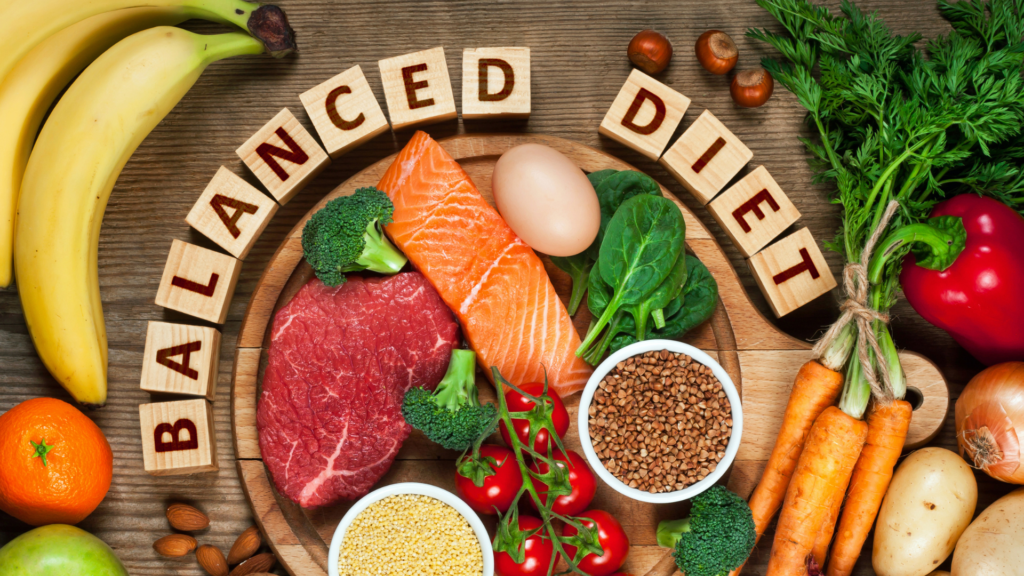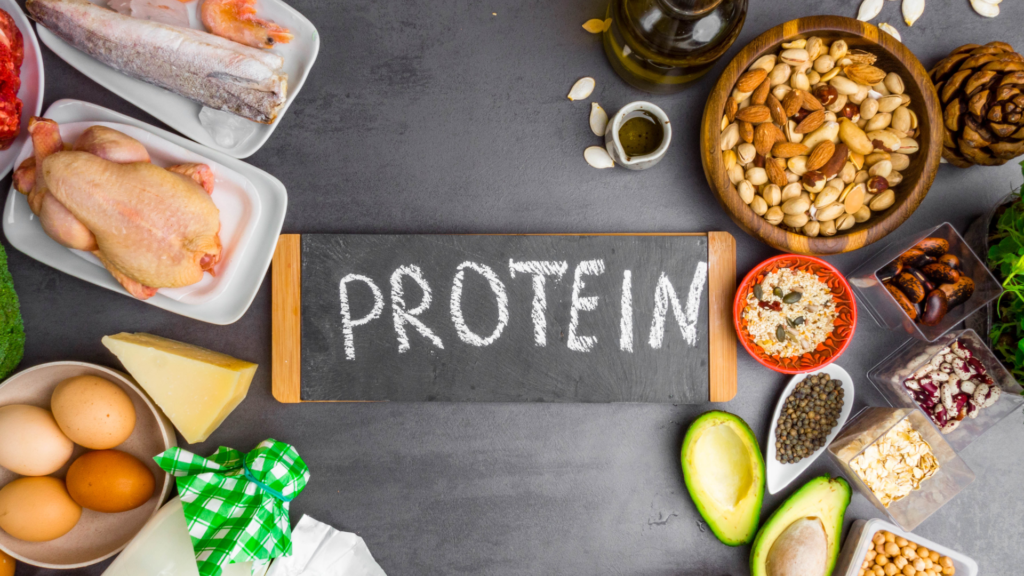
Nutrition and lifestyle can play a significant role in improving fertility for both men and women. Here are some diet and nutrition tips to consider if you’re trying to enhance your fertility:
- Maintain a Healthy Weight: Maintaining a healthy weight plays a crucial role in improving fertility for both men and women. Excess body weight, as well as being underweight, can disrupt the delicate hormonal balance necessary for reproduction. In women, obesity can lead to irregular menstrual cycles and ovulatory dysfunction, making it more challenging to conceive. Moreover, obesity is associated with a higher risk of conditions such as polycystic ovary syndrome (PCOS), which can further complicate fertility.
On the other hand, being underweight may result in irregular or absent menstruation, as well as reduced egg quality. For men, obesity can affect sperm quality and quantity, potentially leading to reduced fertility. By achieving and maintaining a healthy weight through balanced nutrition and regular exercise, individuals can increase their chances of successful conception, making weight management an essential aspect of reproductive health.
- Eat a Balanced Diet: A balanced diet provides the body with the necessary nutrients and energy to support reproductive health. For women, a diet rich in fruits, vegetables, whole grains, lean proteins, and healthy fats can help regulate hormonal balance and support the menstrual cycle. For men, consuming a diet that includes antioxidants, zinc, and essential fatty acids can boost sperm quality and quantity. Also, stay hydrated, drink plenty of water to support overall health, and maintain optimal bodily functions.
- Vitamins and Minerals supplements: Certain vitamins and minerals are essential for fertility. These include folic acid, iron, calcium, vitamin D, and antioxidants like vitamins C and E. Consult your doctor to know if you need prenatal multivitamins to ensure you’re meeting your nutritional needs.
- Maintain Healthy Blood Sugar Levels: Stable blood sugar levels are essential for hormonal balance. Focus on complex carbohydrates, such as whole grains, and avoid excessive sugar and refined carbs. Elevated blood sugar, often associated with conditions like diabetes and insulin resistance, can disrupt hormonal balance in both men and women, leading to a range of fertility issues. High blood sugar can hinder egg maturation in women, affect sperm quality in men, and increase the risk of miscarriages.
Additionally, it can lead to irregular menstrual cycles and ovulatory dysfunction, which are significant factors in female infertility. To support fertility, individuals should focus on a balanced diet, regular exercise, and weight management to help keep blood sugar levels within a healthy range.
- Include Healthy Fats: Healthy fats play a crucial role in promoting fertility. Unsaturated fats, such as those found in avocados, nuts, seeds, and fatty fish like salmon, are essential for reproductive health. These fats provide the body with omega-3 fatty acids, which help regulate hormones and reduce inflammation, both of which are critical for fertility. Additionally, monounsaturated fats, found in olive oil and some tree nuts, can improve insulin sensitivity, which is important for managing conditions like polycystic ovary syndrome (PCOS) that can hinder fertility. Including a balanced amount of these healthy fats in your diet can support reproductive health, enhance egg quality, and contribute to overall fertility.

- Protein Intake: When it comes to reproductive health, adequate protein intake is essential as it contributes to various aspects of fertility. In women, proteins are essential for the development and maturation of healthy eggs and the regularity of menstrual cycles. In men, protein is necessary to produce healthy sperm and maintain optimal sperm count and motility.
Moreover, protein-rich foods often contain important micronutrients such as zinc and iron, which are known to have a positive impact on fertility. Incorporating lean sources of protein like poultry, fish, beans, and nuts into your diet can help support reproductive health and increase the chances of a successful conception.
- Limit Environmental Toxins: Minimize exposure to environmental toxins, such as pesticides, heavy metals, pollutants, phthalates, and BPA found in plastics, which can disrupt the endocrine system and affect fertility. These toxins can be found in various consumer products and food products. Exposure to such substances has been linked to a range of adverse effects on both male and female fertility.
In men, environmental toxins can disrupt sperm production, motility, and morphology, leading to reduced sperm quality and fertility problems. In women, these toxins can interfere with hormone regulation and disrupt the menstrual cycle, potentially causing ovulatory disorders and reducing the chances of conception.
- Limit Caffeine and Alcohol: Caffeine, commonly found in coffee, tea, and energy drinks, has been associated with reduced fertility in some studies. High caffeine intake may disrupt hormonal balance and menstrual cycles, potentially affecting ovulation and the ability to conceive. It’s advisable for individuals trying to conceive to moderate their caffeine consumption.
Alcohol, on the other hand, can also hinder fertility. Excessive alcohol consumption can disrupt the delicate hormonal balance necessary for reproductive health, leading to irregular menstrual cycles and a decreased likelihood of successful conception. Chronic alcohol abuse can further lead to more severe reproductive issues, such as decreased sperm quality in men and an increased risk of miscarriage in women. For those aiming to optimize their fertility, it’s recommended to limit or eliminate alcohol consumption.
- Reduce Processed Foods: Processed foods are typically high in unhealthy additives, preservatives, and refined sugars, which can lead to hormonal imbalances and obesity. These factors are known to have detrimental effects on reproductive health. Excessive consumption of processed foods can disrupt insulin sensitivity and promote inflammation, both of which are linked to conditions such as polycystic ovary syndrome (PCOS) and diabetes, which can hinder fertility. Additionally, the high levels of trans fats and saturated fats in processed foods can negatively affect egg and sperm quality. In contrast, a diet rich in whole, unprocessed foods, including fruits, vegetables, and whole grains, can provide essential nutrients that support reproductive health.
- Quit Smoking: Smoking can harm fertility in both men and women. In women, smoking can disrupt the delicate hormonal balance necessary for successful reproduction. It can lead to irregular menstrual cycles, early menopause, and a higher risk of miscarriage. Additionally, smoking is associated with a lower ovarian reserve, reducing the number of viable eggs available for fertilization.
For men, smoking can impair sperm quality, affecting both sperm count and motility. This can make it more problematic for couples to conceive. Furthermore, the harmful chemicals in cigarettes can damage the DNA in both eggs and sperm, increasing the risk of birth defects and infertility in offspring.
